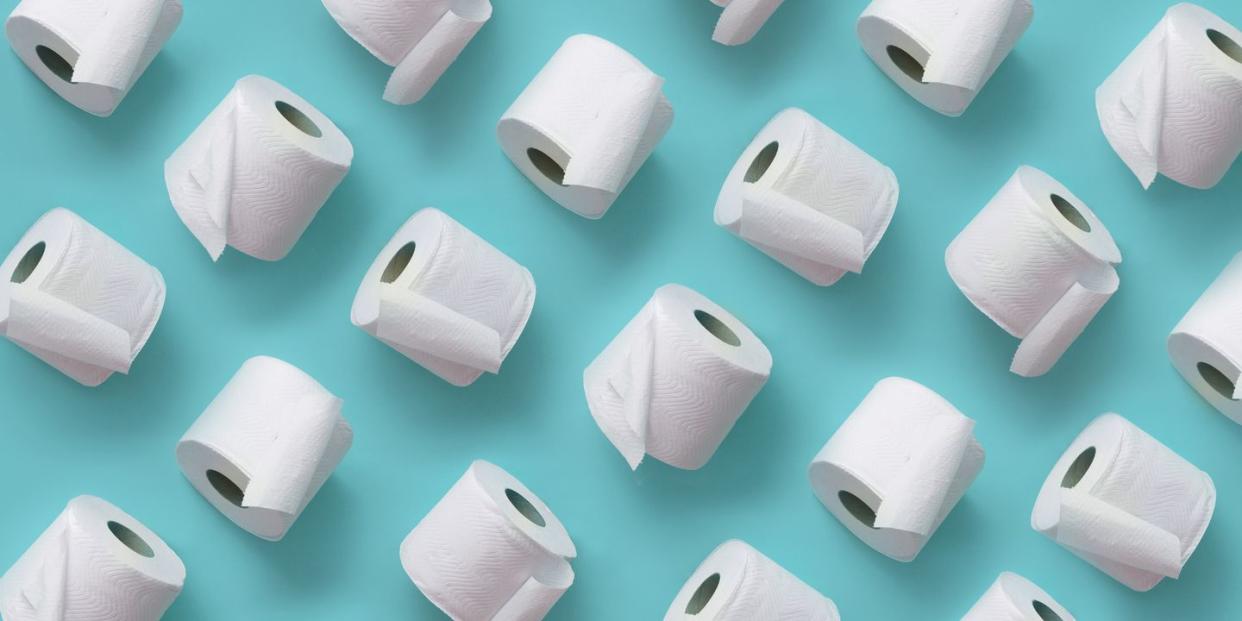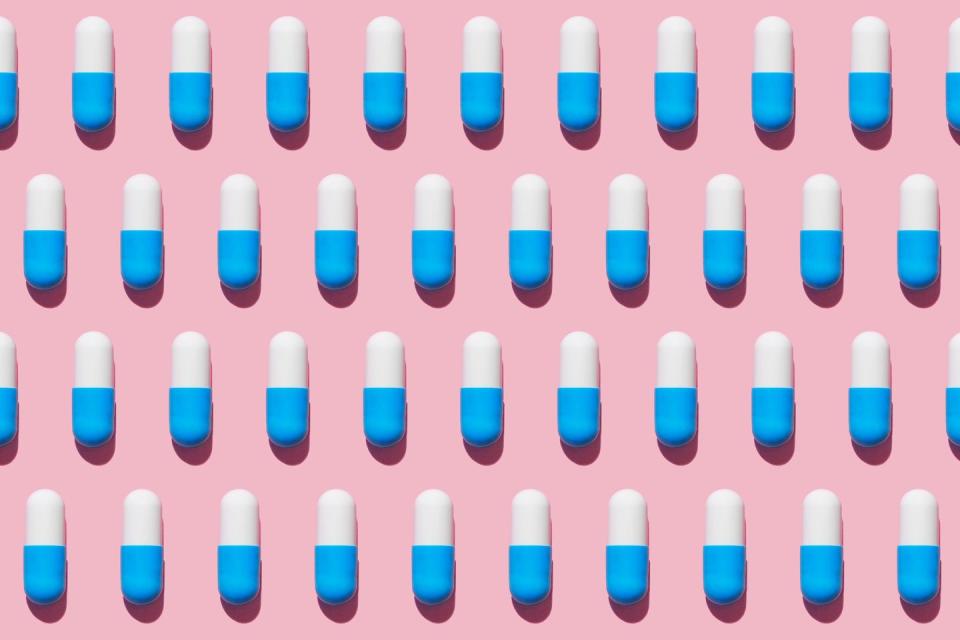5 Common Mistakes That Can Make Ulcerative Colitis Worse

When you live with ulcerative colitis (UC), you know that symptoms can return even if you’ve been in remission—and even if you’re doing everything you can to avoid a flare. Yet there are a number of missteps you might not even realize you’re making that can worsen your condition, says Matilda Hagan, M.D., co-director for the Center for Inflammatory Bowel and Colorectal Diseases at Mercy Medical Center in Baltimore.
“While so much of how your ulcerative colitis plays out is largely out of your control, there are a handful of mistakes many patients make that can easily be avoided,” she says. Here are five of the most common—according to Dr. Hagan and gastroenterologist Raj Devarajan, M.D., president of the Massachusetts Gastroenterology Association:
1. Taking a watch-and-wait approach when symptoms arise.
Dr. Hagan says she has a number of patients who notice they’re having symptoms of an ulcerative colitis flare—things like stomach cramping, diarrhea, feeling a constant urge to have a bowel movement, and passing blood with stool—but hold off on making a doctor’s appointment. “So many people say, ‘Maybe I’ll just wait and see how things go,’ when really, that just delays the diagnosis of a flare,” she says.
Treating a flare right away is crucial, says Dr. Devarajan. “If you’re dealing with a severe flare we want to shut it down immediately to avoid a perforation of the colon.” That can happen when inflammation weakens the colon wall to such an extent that a hole develops in the intestinal wall and requires surgery to fix.
Remember: Many UC patients have a higher tolerance for the kinds of gastrointestinal tract issues that would send other people to the doctor right away, adds Dr. Devarajan. “If you have colitis, you may not be the most reliable reporter of symptoms because you’re so used to them,” he says. Call your doc rather than telling yourself what you’re dealing with is no big deal. “The sooner we get into acute treatment mode, the sooner we can handle those symptoms and get you back in remission.”
2. Skipping medication when you’re not having a flare.

One of the most difficult things about an ulcerative colitis diagnosis is that it can feel like a lifelong sentence. After all, it’s a chronic condition that you will likely be dealing with for the rest of your life, says Dr. Hagan. This is important to remember. “We work to get patients into remission and to remain in remission—but when symptoms aren’t present, many people can be tempted to think that their colitis has been cured and that they can stop taking their medication,” she says. “Yet if you do this, you’re not taking into account the fact that your maintenance medication is helping you maintain remission.”
If you’re experiencing a side effect from one of your medications or feel like it has stopped working, have a conversation with your doctor before you make any changes to your treatment protocol, she says.
3. Taking certain pain medications.
An estimated 60 million Americans use non-steroidal anti-inflammatory (NSAID) drugs regularly, which includes pain-relievers like aspirin and ibuprofen. Although they work well to relieve aches and pains for most people, it’s important to steer clear of NSAIDs if you have UC, says Dr. Hagan.
That’s because NSAIDs work by blocking two enzymes in the body: one plays a role in the inflammatory process and the other regulates substances that protect the digestive system. For colitis patients who already have inflammation (or the propensity toward developing inflammation) in their digestive tract, this is a particularly bad combo. “NSAIDs can worsen bleeding in the small intestine and interfere with the stomach and intestinal lining’s ability to make protective mucous,” says Hagan.
Research also shows that NSAIDs can cause a relapse in symptoms for colitis patients who are in remission.
If you’re looking for over-the-counter pain relief, acetaminophen (a.k.a. Tylenol) is a much better choice than NSAIDs like Advil, Excedrin, or Motrin.
4. Being hard on yourself when symptoms resurface after a period of remission.

After weeks, months, or possibly even years of living your life with no UC symptoms, it can be devastating when you experience a flare. For many UC patients, this means questioning what they might’ve done to prompt it, says Dr. Hagan. “It’s so important to remind yourself that even if you’re on the right medication, your disease can be active again despite doing all the right things,” she says. “Many colitis medications dampen the immune system, which doesn’t like being suppressed and constantly tries to find a way to outsmart what we’re doing.”
Rather than spinning about what you could’ve done differently, focus on what you can do, says Dr. Devarajan: Call your doctor so you can have a conversation about why you might be experiencing symptoms again. “We can look at markers in your stool and blood, as well as take a look with a scope, to get a better picture of what’s happening,” he says.
And remember, 70 percent of patients with ulcerative colitis can expect to experience a relapse over a 12-month period, according to research. If it happens to you, you’re not alone—and berating yourself for something that’s very likely out of your control won’t help, adds Dr. Devarajan.
5. Not talking to your doctor before starting a new diet or taking supplements.
Are you considering trying a new way of eating or starting a new regimen of vitamins and minerals? While it may be just fine (and possibly even beneficial!), Dr. Hagan says it’s important to run it by your doctor first. “I love it when my patients come to me and say, ‘Hey, my girlfriend told me this supplement is great for a healthy immune system and I want to take it,’” she says. “This gives me a chance to take a look at the supplement, along with the other medications that the patient is on, so I can make sure nothing will interact.”
[TK links to other UC content]
As for diet changes, most foods are OK for colitis patients because colitis mainly affects the large intestine. “By the time food gets there, you’ve gotten what you need out of your food and your body is just eliminating the rest,” Hagan says. That said, it’s still a good idea to clue your doctor into any big changes in your go-to diet. “For example, if you’re taking an immunosuppressant drug, you’ll want to avoid eating anything unpasteurized,” says Dr. Hagan. (Think: unpasteurized milk, cheese, or fruit juice.) “Think of it as a great opportunity for you and your doctor to touch base and make sure your lifestyle choices are supporting your treatment plan.”
You Might Also Like

